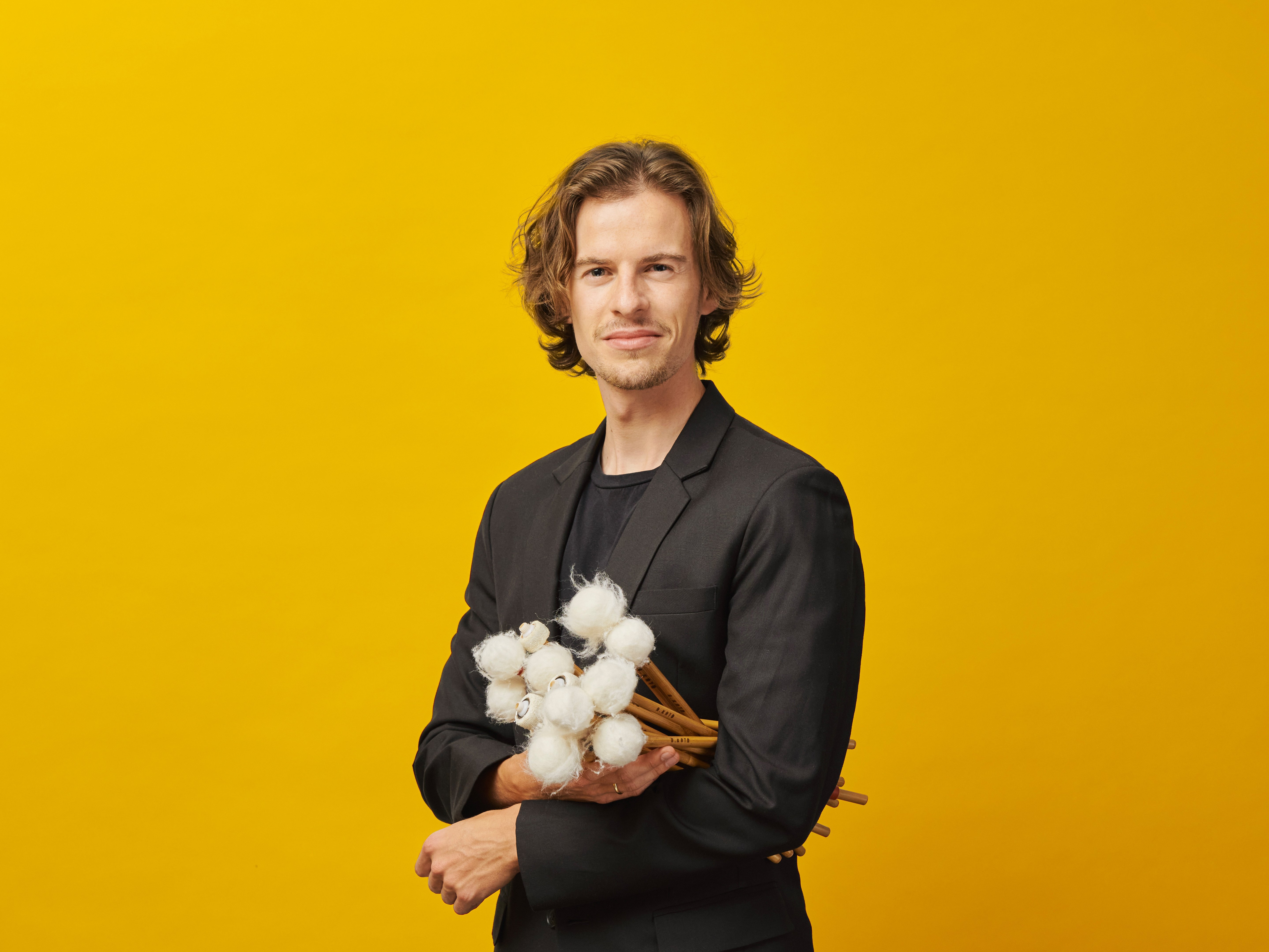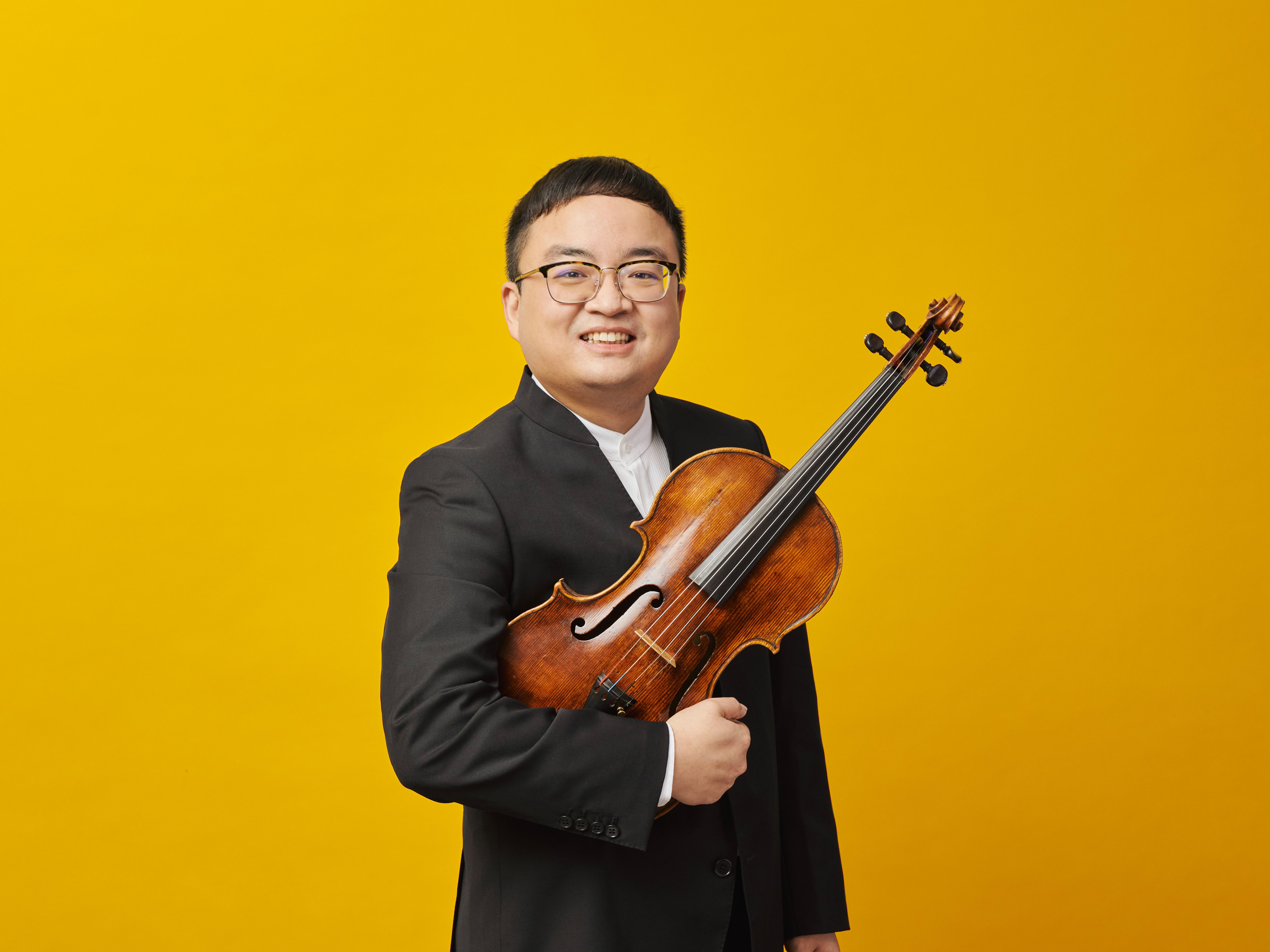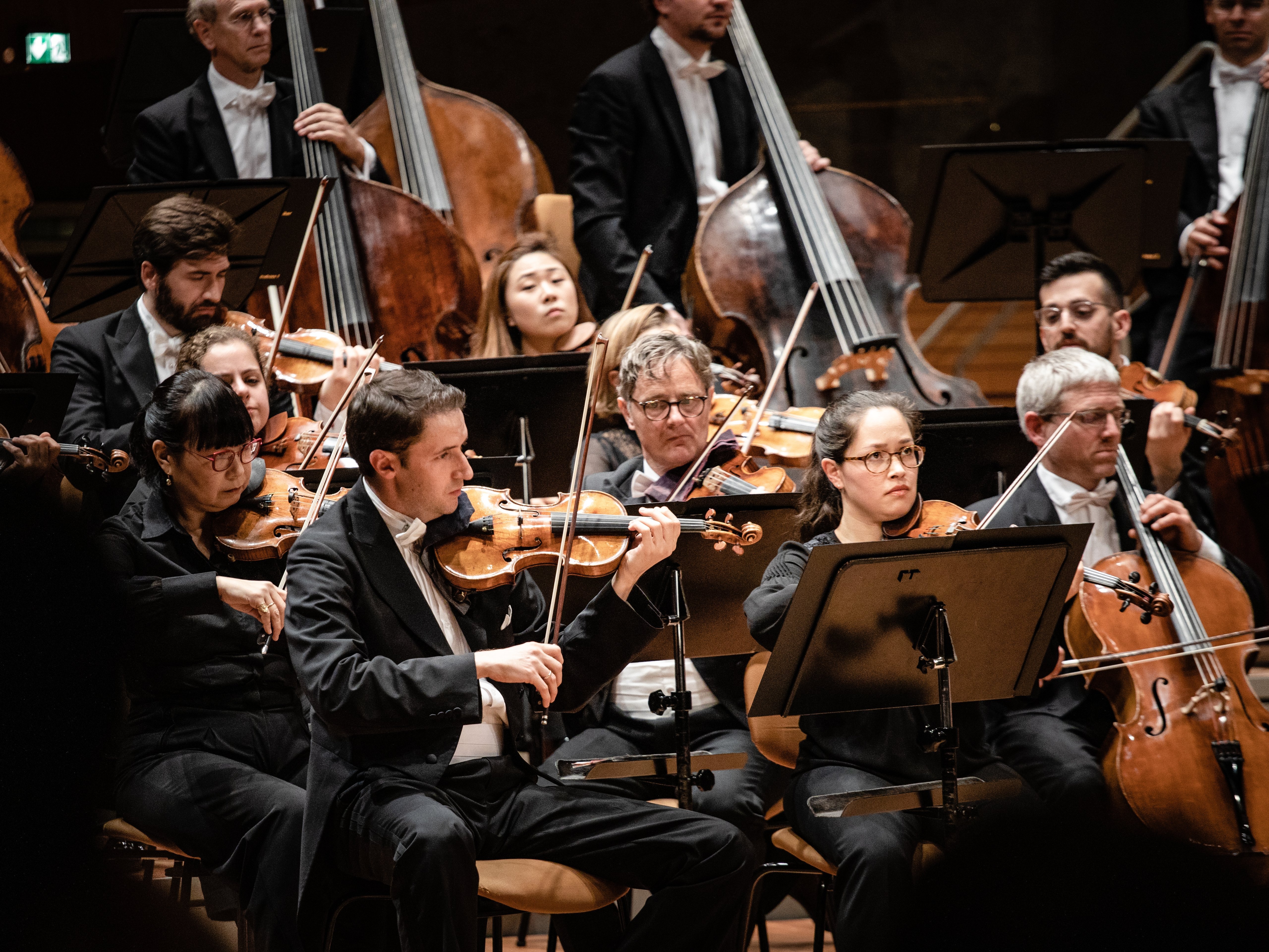
In June, violinists Roxana Wisniewska, Harry Ward and Eva Rabchevska passed their probationary period to officially become members of the Berliner Philharmoniker. We introduce you to the musicians in a little more detail.
Roxana Wisniewska
It was an overwhelming moment for Roxana Wisniewska when she learned that she had passed her probationary period: “Just knowing that I now have 40 years of professional life in this orchestra to look forward to fills me with pride. It is an honor and an immense joy.” The Spaniard with Polish roots belongs to the fourth generation of a family of professional musicians. Even as a young child, she was impressed by her violin-playing parents’ passion for music; so it seemed only natural for her to follow in their footsteps. She has always loved the instrument’s wide range of colours and nuance. She received her first lessons from her grandfather and mother, with whom she gave her first public solo performance at the age of 14. She later studied in Madrid at the Centro Superior Katarina Gurska with Zohrab Tadevosyan, at the Escuela Superior de Música Reina Sofía with Ana Chumachenco and at the Dresden Hochschule für Musik with Natalia Prischepenko.
She gained early experience as an orchestral musician with the Gustav Mahler Youth Orchestra, with the Staatskapelle Berlin’s academy, and as a member of the Karajan Akademie of the Berliner Philharmoniker. Roxana Wisniewska made the leap from the Akademie to the first violin section in March 2023. She found the trial period with the Berliner Philharmoniker both challenging and enriching. Challenging because, in contrast to other orchestras, the rehearsal period is longer. “That increases the intensity and pressure. I really needed a lot of mental stamina.” Adapting to the orchestra’s unique style and finding the balance between precision and spontaneity were part of the learning processes. She found it enormously enriching to experience the musical diversity of her colleagues. Her conclusion from the trial period? “I improved my general knowledge and broadened my musical perspective. I believe that I gained a more rounded and complete idea of music during this time.”
Harry Ward
“It is a great honor for me to be a full member of the Berliner Philharmoniker,” says a delighted Harry Ward. He has been playing in the first violin section since March 2023 and has now passed his probationary period. He joined the orchestra straight from the Karajan Akademie, where he was a student of first concertmaster Noah Bendix-Bagley. This was the fulfilment of a long-held dream. Although Harry Ward had grown up on the other side of the world, in Sydney, he had known and loved the Berliner Philharmoniker’s recordings since childhood. His brother already played the violin, and the young Harry Ward wanted to follow in his footsteps. He went on to study at the Sydney Conservatorium of Music with Peter Zhang and Alice Waten, at the University of Music and Performing Arts Graz with Boris Kuschnir, at the Robert McDuffie Center for Strings with David Halen and Amy Moretti and with Robin Wilson at the Australian National Academy of Music.
The violinist’s training was supported by various scholarships, for example from the Musica Viva Australia Futuremaker and the Australian Elizabethan Theatre Trust. How did he find the rehearsal period with the Philharmoniker? “It was a great mental challenge. I always wanted to give my best. That made me feel stressed at first – until I discovered that I can also use the stress in a positive way, as tension that inspires my music-making.” This attitude strengthened Harry Ward’s confidence. Some of the best experiences of his probationary period were the performances of Strauss’ Elektra in Baden-Baden. Preparing for it demanded a lot from him – not least because the first violin section is scored as “divisi”, meaning that the section’s two halves play different musical lines. But being part of this production made him very happy. Now he is looking forward to being able to enjoy the work even more. In the future, he wants to play more chamber music and discover more contemporary music.
Eva Rabchevska
“I still have to get used to the fact that I’m now officially part of this dream orchestra,” says Eva Rabchevska. “It will be a while before I realize that.” The Ukrainian-born violinist has only been a member of the second violin section since the beginning of the year, but made such a positive impression that her trial period ended after just a few months. Eva Rabchevska first appeared on the concert platform at the age of eight – with the chamber orchestra in her home town of Lviv. Her training took her to Kiev with Yaroslava Rivnyak and Jozef Kopelman in Bratislava, and later to Zakhar Bron at the Escuela Superior de Musica Reine Sofia in Madrid. In April 2022, she moved to Antje Weithaas’ class at the Hanns Eisler School of Music in Berlin. Six months earlier, Eva Rabchevska had also become a member of the Karajan Akademie and gained important orchestral experience.
When she then got her job with the Berliner Philharmoniker, Rabchevska found the transition from academy student to orchestra colleague challenging. She was not deterred by the fact that she initially only played with the Philharmoniker “on trial”. “I concentrated on trusting myself,” she says. After all, she could already look back on solo appearances with orchestras such as the Slovak Radio Symphony Orchestra, the Kyiv Symphony Orchestra and the national orchestras of Lithuania and Belgium. The violinist has also won numerous prizes, including two first prizes at the Lipiński-Wieniawski Competition and the Stuttgart International Violin Competition. However, the tasks that awaited her as a member of the second violin section were new: “I had to learn to adapt quickly and find my place in the overall orchestral sound. Sometimes we spread out a carpet of sound as a group, sometimes we support the first violins as a second voice, or join the violas as middle voices. From time to time we also shine as soloists. The variety of our tasks demands great flexibility.”

Welcome to the Berliner Philharmoniker!
We introduce you to Vincent Vogel, Tobias Reifland and Barbara Kehrig as new members of the orchestra.

Congratulations Diyang Mei!
The principal violist of the Berliner Philharmoniker has passed his probationary period.

Musicians
Brief portraits of all members of the Berliner Philharmoniker